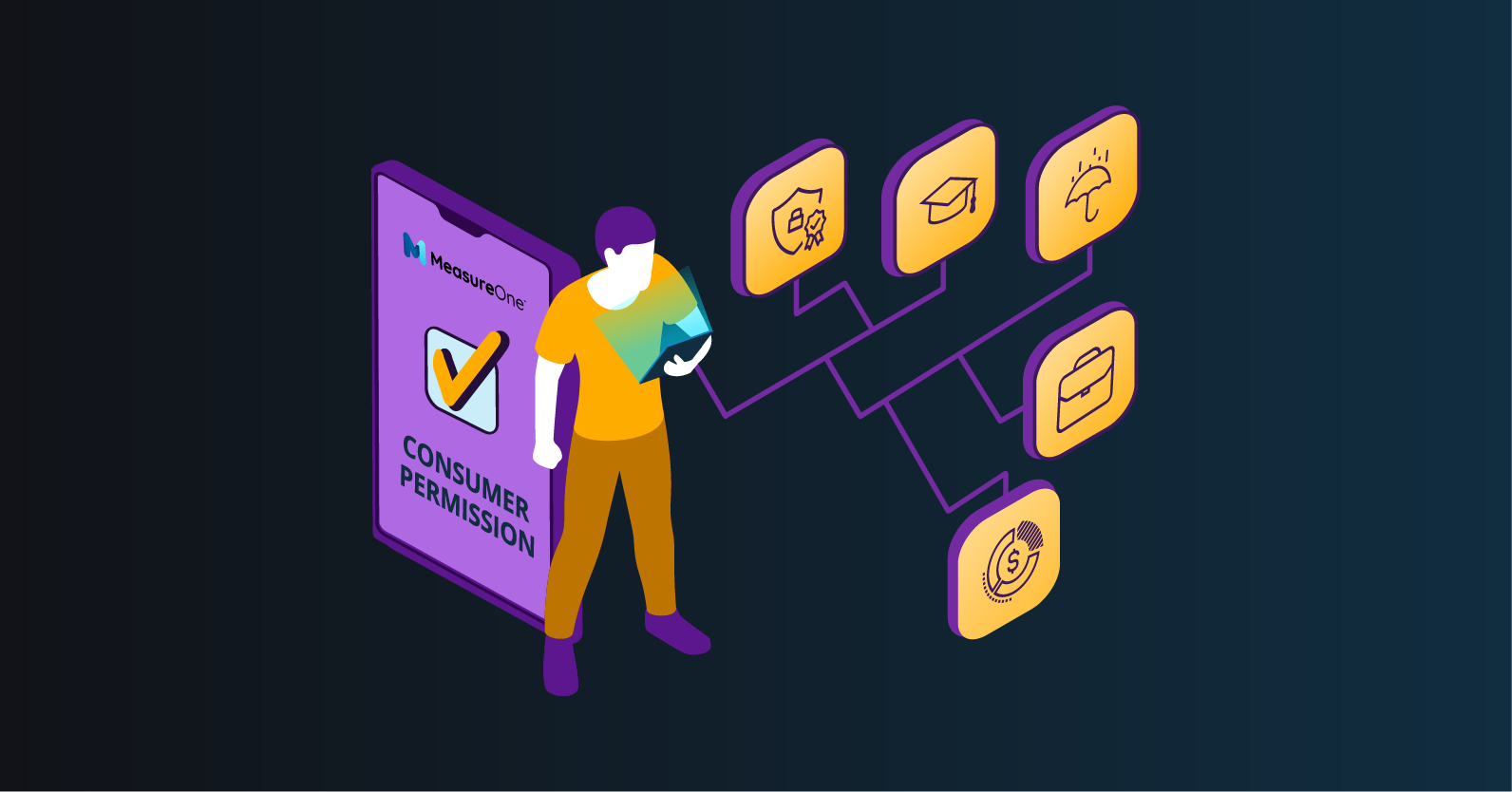Contents
- An abbreviated history of AI: From rule-based systems to real-world intelligence
- What is an MCP server in AI
- Why MCP servers are changing how AI works
- How MCP servers are used in business today
- MeasureOne’s MCP server: Real-world AI data access and verification
Artificial intelligence has evolved in short time from a futuristic conception to an essential business tool. Over the past decade, we’ve seen AI progress from simple rule-based systems to large language models capable of reasoning, automating tasks, and generating human-like responses. This year alone, AI has exponentially changed the way businesses work and technology performs.
Yet, one major challenge remains: AI models need accurate, real-world data to make reliable decisions. Without it, even the most sophisticated AI is only guessing. That’s where the MCP server comes in.
An abbreviated history of AI: From rule-based systems to real-world intelligence
Artificial intelligence has gone through several major phases of conception and innovation in human history.
In fact, human interest in AI, through philosophy, mathematics, and narratives around its futurology in text, has been alive since the 1720s.
With the introduction of machine learning in the 1950s and natural language processing in the 1970s, AI began to evolve from ideology to tactical function. Reinforcement learning, pattern-recognition programs, and algorithmic learning launched AI into the state we know it today, with systems learning from data rather than following strict rules, making them more flexible and capable of pattern recognition. Fast forward to the 2010s, and the rise of deep learning and neural networks gave us powerful systems that could understand images, speech, and natural language at a human-like level.
Today’s AI, driven by large language models and generative systems like Chat GPT, Claude, and others, has entered a new phase focused on autonomous reasoning and interaction. But this evolution has revealed a critical gap: while AI is capable of generating and reasoning, it still lacks direct access to real, verified data.
What is an MCP server in AI
An MCP server, or Model Context Protocol server, acts as a bridge between AI models and external, real-world data sources. It allows an AI system to securely request and receive verified data that it can use to complete a specific task or workflow.
Think of it as the connective layer between AI and reality. While traditional AI models rely on static datasets or pre-trained information, an MCP server enables live data access. This means an AI agent can pull current, relevant, and accurate information directly from trusted systems instead of relying solely on its training data.
For example, in a business environment, an MCP server can allow an AI agent to access real-time data like financial records, insurance details, or employment verification, while maintaining strict privacy and security controls. This ability to “talk” to real-world systems is what unlocks the next level of intelligence in AI.
Why MCP servers are changing how AI works
AI models are only as powerful as the data they use. MCP servers solve one of AI’s biggest limitations: lack of verified, contextual information.
Here’s how MCP servers are changing the landscape:
- Real-time accuracy: Instead of relying on outdated training data, AI models can now access up-to-date, verified information.
- Secure data access: MCP servers define a standardized and secure way for AI to connect with sensitive data sources without exposing them.
- Operational automation: Businesses can use MCP-powered AI agents to automate complex processes, such as verifying consumer data, underwriting insurance policies, or processing financial applications.
- Improved decision-making: With real-world data feeding into AI systems, the insights generated are more accurate, actionable, and compliant.
MCP servers make AI useful not just as a reasoning engine, but as an active, data-driven assistant that can interact with the systems we use every day.
How MCP servers are used in business today
Across industries, companies are already exploring ways to connect agentic AI to the verified data they need to operate.
For instance, in auto lending, AI systems can use an MCP server to instantly verify an applicant’s auto insurance coverage before finalizing a loan. In employment verification, an MCP server can allow an AI workflow to confirm a person’s job status directly from their employer’s system, ensuring data accuracy and compliance.
These types of real-world integrations are driving the next phase of automation, where AI doesn’t just analyze data, but actively retrieves and validates it.
MeasureOne’s MCP server: Real-world AI data access and verification
MeasureOne’s MCP Server is a practical, enterprise-ready implementation of the Model Context Protocol framework. Built for real-time, secure, and automated data access, it enables AI systems to connect directly with verified consumer data across multiple categories, including insurance, employment, education, and income.
The MeasureOne MCP Server is the new way for instant and efficient data verification where:
- Developers gain modern, standardized tools to build with.
- Businesses gain faster, safer, customer-friendly workflows.
- Consumers maintain transparency and control over their data.
As AI adoption accelerates, organizations that can connect intelligence with trusted, permissioned data will win. With the MeasureOne MCP Server, that future starts now.

